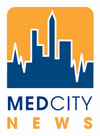
The share of healthcare investment dollars going to early stage deals dropped sharply in the first quarter of this year to its lowest level in five quarters.
In the first quarter of 2011, just 1 percent of healthcare venture deals involved seed-stage companies, according to a report from New York research firm CB Insights.
That compares with 6 percent of the deals the prior quarter and 3 percent in last year’s first quarter.

At the same time fewer deals involved seed-stage companies, the overall number of healthcare deals dropped 13 percent to 150 compared to both the first and last quarters of 2010. Each of those quarters featured 173 healthcare venture deals, according to the report.
B Insights co-founder Anand Sanwal attributed the “malaise” in the healthcare venture investment market to three primary factors: biomedical investments are often “capital intensive,” which turns off some VCs; the long time horizons it often takes for biomedical companies to exit; and a lack of many recent exits for health firms.
Industry insiders would likely say the downward trend in seed deals illustrates the need to find creative ways — such as state assistance — of getting more dollars to early stage biomedical firms as they navigate the so-called “valley of death” between startup and getting a product on the market.
Angel investors in some cases can fill that role, but a recent report from the University of New Hampshire’s Center for Venture Research shows that angels, too, are decreasing the share of investment they put into early stage deals.
“This decrease in seed/startup stage and first sequence investing is of concern,” said Jeffrey Sohl, the center’s director, according to peHub.
One positive trend the CB Insights report showed for early stage health investing is that, at $2 million, median deal size grew to its greatest level in at least five quarters. That’s a huge increase over the first quarter of 2010, when the median early stage deal size was $400,000.
At a little less than $1.6 billion, the overall dollar value of healthcare deals in the first quarter was up 11 percent year-over-year and was flat when compared with the prior quarter.
As always, California and Massachusetts dominate the healthcare venture investing industry. California companies pulled in a whopping 45 percent of all healthcare investment dollars, while Massachusetts contributed 19 percent. North Carolina was a distant third at 6 percent.
Here’s a roundup of the latest dealflow and investment news:
- CryoLife updates tender offer related to proposed Cardiogenesis takeover
CryoLife Inc. (NYSE:CRY), an implantable biological medical device and cardiovascular tissue processing company, today announced it has amended its tender offer related to its proposed acquisition of Cardiogenesis Corp. to acquire only 49.9 percent of the outstanding shares of Cardiogenesis.
Read more - Rotation Medical drums up $10 million, wants $5 million more
Rotation Medical, a Plymouth, Minn.-based company, is a bit of a chameleon. The company has changed names, and in a recent Securities & Exchange Commission filing, showed that it is no longer a biotech company. Now it’s simply “other healthcare.” Still, raising money hasn’t been a problem. The April 14 filing shows that the company has raised $10 million of the $15 million it intends to raise, according to MedCity News.
Read more - Carmell Therapeutics closes Series A financing
Carmell Therapeutics, a company that manufactures novel blood plasma-based biomaterials that accelerate the repair of injured tissues, has closed on a Series A financing it will use to establish a pilot manufacturing facility and collect data for early clinical validation for the company’s first products.
Read more - DGIMed Ortho raises $2.1 million
An orthopedic company in Minnetonka, Minn. raised $2.1 million in its latest funding round, according to a filing with the SEC. DGIMed Ortho, an early stage medical device company, makes the Distalock system consisting of intramedullary nails and drills that assists orthopaedic surgeons.
Read more - Calibra drums up $8.1 million, looks for another $21.9 million
Redwood City, Calif.-based Calibra Medical Inc. raises $8.1 million from a proposed $30 million round. Six unnamed investors participated in the equity-based financing round, according to an SEC filing.
Read more - Dynatronics regains NASDAQ compliance
Dynatronics Corp. (NSDQ:DYNT) announced that the company has received a letter from NASDAQ stating that Dynatronics has regained compliance with the $1.00 minimum bid requirement for listing on that exchange.
Read more

